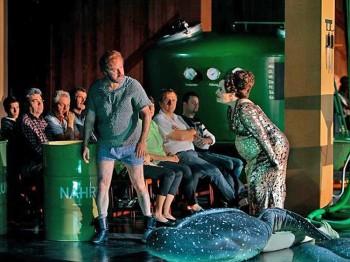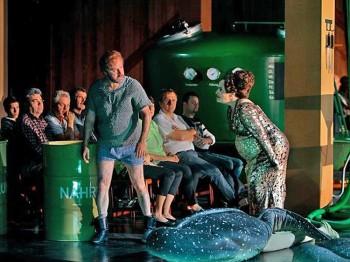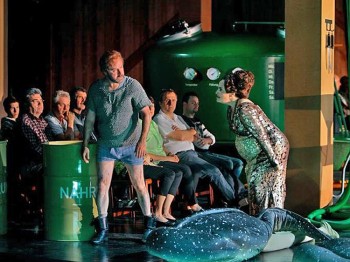Music Spellbinding, Directing Disheartening
BAYREUTH, Germany—Conductor Thomas Hengelbrock guided his performers to a fresh interpretation of “Tannhauser,” but Director Sebastian Baumgarten delivered us a visual production that was raw, if not nearly rotten.

Lars Cleveman played Tannhauser and Stephanie Friede played Venus. The set design was by Joep van Lieshout and costumes by Nina von Mechow. Courtesy of Bayreuther Festspiele/Enrico Nawrath
|Updated:





